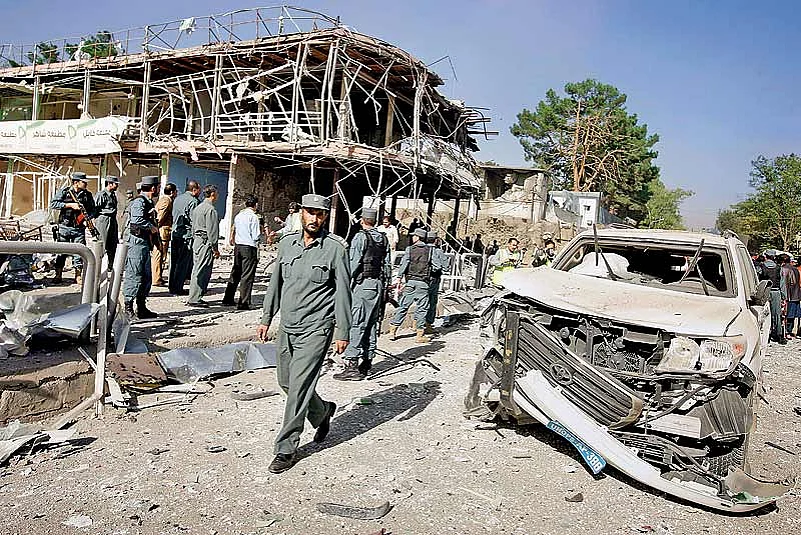There have been several seminal works on Afghanistan, the Taliban and Al Qaeda, including a recent book by a member of the US Navy SEALS team that took out Osama bin Laden in his Abbottabad hideout. Now another book, but this one is by an Indian author, noted journalist and veteran editor Hiranmay Karlekar. This is his first work on Afghanistan and builds on an earlier book, titled Bangladesh: The Next Afghanistan, published six years ago.
The thrust of Karlekar’s narrative is the threat posed by a resurgent Taliban-Al Qaeda takeover of Afghanistan. India, he warns, will be “the first to feel the aggressive consequences” of such a takeover, as Pakistan, compromised by its links with the Taliban, will escalate Ghazwa-e-Hind or the Battle for India, which began in the 1980s with terror strikes. It could even force a conventional war in which the threat of using nuclear weapons could come into play. Karlekar explores the motives and intentions of the many players in the Afghanistan game, including the US and Pakistan. He documents Washington’s failures and Islamabad’s accurate weighing of how far Uncle Sam would be willing to stretch his neck out in this desolate Asian backwater.
One would have liked to read more about India in the Afghan context, how the MEA sees the Afghan checkerboard playing out, how it plans to defend the $1 billion it has invested in scores of goodwill projects, whether it is looking at military options, and whether any contact has been initiated with the Taliban. (The MEA says no, but Afghans talk of why the Taliban may not have targeted Indian projects.) Those who follow Afghanistan may be especially interested in a reading of how Indian policy for Afghanistan may shape out post-2014. Does Pakistan want a resurgent Taliban in Kabul? In Track-ii meetings, retired ISI officers have reportedly told their Indian counterparts that they’d prefer an Afghanistan with a weak man at the top, not the Taliban, which would seek to expand into Pakistan’s Pushtoon territories.
Karlekar’s research is extensive. He covers familiar ground but significantly adds to our understanding of a neighbour near yet distant. Perhaps we can look forward to another work on some of the more Indiacentric issues that Afghanistan throws up.


























